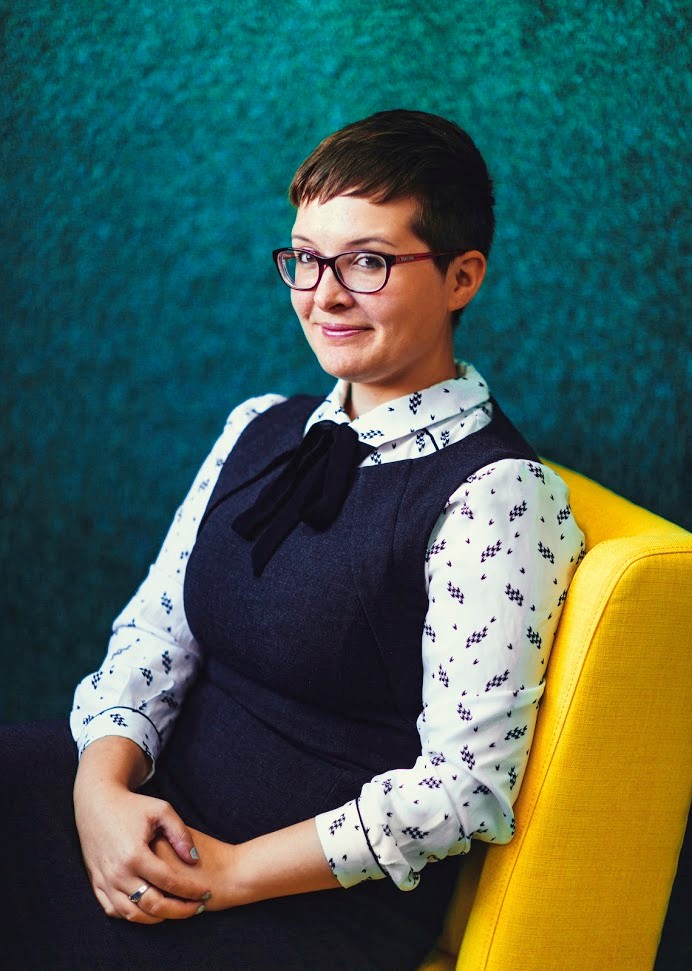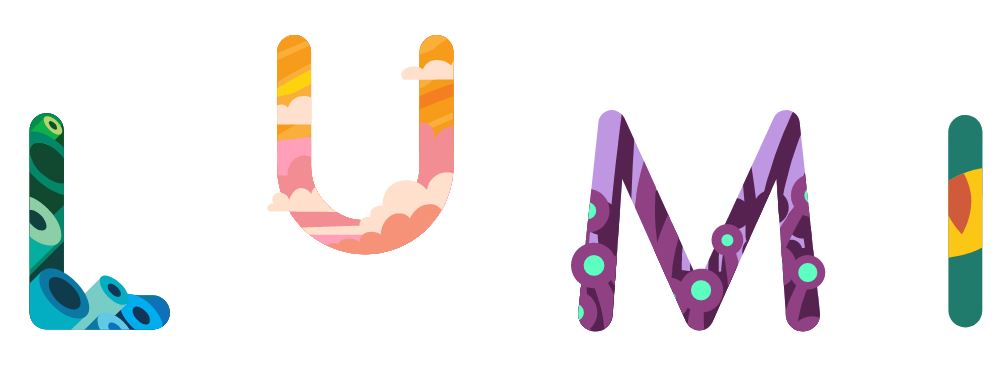Lauren Clinnick

- Role: Managing director
- Company: Lumi Consulting
- Location: Melbourne, Australia
Queerly Represent Me asked Lauren Clinnick about her work as managing director of Lumi Consulting.
QRM: Can you tell us a little bit about who you are and what you do in the games industry?
Lauren: For sure! I co-run a marketing and PR consultancy for the games industry. We help studios get their messages out there, whether it's in the form of designing a promotional launch plan for a game, helping them form a brand identity, polishing up their Steam page – every client is unique!
QRM: How long have you been involved in the game industry, and what projects have you worked on? What are you working on currently?
Lauren: Hmm, I've been working in games for over 5 years. We have been the PR team for titles including Crossy Road, Framed 2, Shooty Skies, Read Only Memories, Ticket to Earth and so much more. We have also assisted with event management or press office duties at Melbourne International Games Week in 2016, and Unite Melbourne in 2015 and 2016. We do so many things! 😊
Currently we work with several independent studios releasing games across mobile, PC and every next-gen console – mainly assisting with marketing asset production, media outreach, and assisting with the development of key marketing messages (ie. What makes this game special? What makes US stand out?).
QRM: What inspired you to get started in the games industry?
Lauren: Games are the beautiful intersection between art and technology. It's evolving, creative, emotional and inspiring. Once I played games, I wanted to help them exist and it all went from there.
QRM: In what ways do you feel your experiences as a queer person manifest in the games you work on, and influence the work you do?
Lauren: As an out queer person, I am extremely passionate about any projects that have queer themes and/or characters (like Read Only Memories, Ticket to Earth and others). Being queer means I bring an understanding and authenticity to my work on those games – I understand why these aspects are important, powerful and meaningful, and how to make them shine.
Generally, the games we work with are all unusual, colourful, and don't contain realistic violence. My whole team shares the philosophy that games can be, and often are, so much more than the stereotype or the history of the medium. It influences the work we choose to accept, because every project we work with is 'hopeful', lighthearted or uplifting in some way – and hope is something very important to me as a queer woman.
QRM: Do you have a favourite queer character—in games or media more generally? If so, what is it about them that makes them your favourite?
Question asked by @kamienw.
Lauren: Hmmmm. Tough question!
I love Fenris from Dragon Age 2, because as a bi/pan man his major hang-up about falling for a male Hawke is if Hawke is a mage – a conflict of values that isn't about their sexuality! The tension and 'hatemance' is absolutely delicious, and it shows that romantic queer character development and tension does not have to be drawn only from the characters struggling with their sexuality.
I also love Kalinda Sharma in The Good Wife, because arguably she is not a good person. It's great when a member of a marginalised group(s) can be a 'bad person' in media, because it's a sign that we are past tokenism. She doesn't have to represent all bisexual PoC women, because the show has other examples. She's smart, resourceful, sexy, threatening, and probably has an unrequited love thing for the protagonist Alicia – what's not to love?
QRM: Have you ever encountered roadblocks in trying to include queer characters in games? What do you think is preventing greater diversity within games?
Question asked by @dustinalex91.
Lauren: Hmm, good question. There is some trickiness in that developers need to think creatively about how to flag queerness in their game. Or is there a way you can show queerness in your game that isn't ONLY about who they have previously, could currently, or WILL date/flirt/sleep with? Showing queerness through romance options is great, but I'd appreciate more games without interpersonal mechanics to still find ways of including queerness, and also ways that facilitate asexual expression.
A developer who 1) understands and 2) values diversity and queerness has a lot of decisions to try and make to include it in-game. Is it some simple flavour text, is it a dialogue reference between characters, or is it expressed only in sexualised ways? Is it as simple as showing that marriage doesn't have gender limitations in your world? Or as simple as including character customisation options that aren't limited by an initial gender choice (Saint's Row), or options that suggest your character may be trans or gender diverse (Dream Daddy)?
It's tough for a lot of reasons:
There aren’t a heap of past examples or historical inspirations for queerness in games. Childhood games for the current generation of creators generally didn't have queerness or diversity generally. The mega influential 'greatest games of all time' generally don't include super diverse queer games yet.
Developers themselves also aren't always a mega-diverse bunch. Many developers who aren't very diverse themselves may VALUE diversity and queerness genuinely, but not understand it, or be very nervous or ill-equipped to authentically include queer content. Because many don't think of it naturally, they have to REALLY think about how to include it, and plan for it, and when it comes to crunch time we're all desperately cutting stuff – and the extra diverse content may get cut too because it isn't the MOST important thing to a homogenous straight dev team a lot of the time. In comparison, queer game developers subconsciously queer the content in the games they work on all the time. Our lives are natural for us, so it's a lot more natural to 'queer up' the games we work on – often without realising, or consciously because it's really important to us.

QRM: Why do you think it is important that queer audiences are able to see themselves represented in the games they play, and in the developers who make the games they see? What can we do to improve the industry for queer audiences and devs?
Lauren: Yes, it's massively important. It's very hard to be what you can't see, and seeing happy queer and diverse characters in games is really powerful – it says that we can be heroes, we can save others, we can be needed and strong and we can have a happy ending.
Visible queer developers show that diverse and queer folks can chase a dream job. You can create, you can achieve, you can give back to the medium that you love. Those are all hugely powerful things – and it strengthens me personally so much every time I meet a queer woman or gender diverse person totally kicking ass and making great things in my industry. I didn't see that much when I was joining the industry, but now I see it heaps more and I LOVE it.
We can improve the industry for queer audiences and devs by buying queer games, supporting the creators with reviews, and being kind to them. We can help queer audiences by including them in the stories we are telling in the games that we make, without harmful tropes, without erasure.
QRM: Have you ever mentored somebody in your role in games, or been mentored? If so, what made these experiences worthwhile for you?
Question asked by @pepelanova.
Lauren: Absolutely. I have been mentored by amazing people in the games industry. It was worthwhile because it generates ideas on how to make plans to tackle my own challenges, and gives me permission to be vulnerable and unsure and imperfect.
Katie [Gall, Lumi Consulting] and I have also mentored others. Even though we're young (late 20s), we built a business and employ staff – which is something a lot of women and gender diverse folks are curious about. We love showing that Katie and I make awesome things that are shaped by our values, while being authentic and open about who we are while we do it.
QRM: In what ways can non-queer folk increase and support queer diversity present within games, as well as in the industry more broadly? How can we all work to support intersectional approaches to diversity, and why is this important?
Lauren: Give queer game devs your money and your love!
Non-queer folks can spend time and energy learning about us, what we live with, our culture, and learn to love us and what we make. Genuinely connecting with queer characters in games can be a massively big step towards understanding that we aren't different (not in any kind of way that should make someone nervous or angry). It's important because maybe you can learn something and don't have to ask us stupid questions, haha!
QRM: Is there a message that you would like to share with the queer game players, game studies researchers, and other interested folks who comprise the Queerly Represent Me community?
Lauren: I love you, I see you. You are enough.
*
You can find Lauren on Twitter.
Check out Lumi Consulting at their website.
